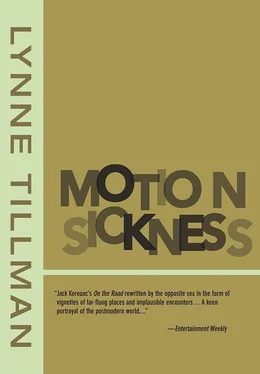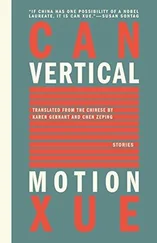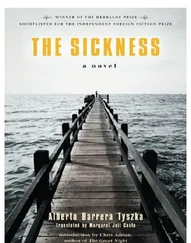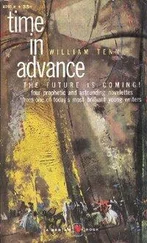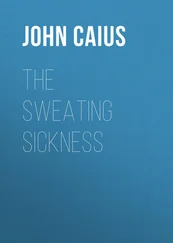ISTANBUL
Cengiz is in the café across the street from the Blue Mosque, or Sultan Ahmet. I’m sitting with the Professor, a ubiquitous figure in the café. An aged American, he lives in a van outside the café and is unkempt and bearded. Cengiz comes over to our table and kindly offers the Professor a chicken from his farm in the city. The Professor asks him to join us. Cengiz is, the Professor tells me, a chicken farmer and a poet. Cengiz relaxes, maybe basks, as the Professor proffers his condensed biography. Then Cengiz asks me why I’m here in Istanbul, alone. I stare at his teeth which are small and square, teeth that look like they could bite through anything, teeth yellowed from the cigarette that hangs from his lips. Cengiz takes my book — Spillane’s My Gun Is Quick —opens it to the first page and reads aloud with staccato-like precision: “You pick up a book and read about things, getting a vicarious kick from people and events that never happened. You’re doing it now, getting ready to fill in a normal life with the details of someone else’s experiences.” Come along, he says, standing up and putting on a worn U.S. Navy coat, come with me for a walk, let us go to Asia. The Professor, he tells me on the outside, is not a professor.
The walk on the Galata Bridge, which crosses the Bosphorus, takes us nearer to the East, but not to Asia, as Cengiz promised. When we reach the other side, he points to Asia and announces proudly, There, a new continent. He says we have left the West behind. While I think this is overly optimistic of him, I glance back furtively to see what I’m giving up. Cengiz’s smoky glasses give his round face a somber appearance but he smiles frequently as if to dispel my doubts and his. His hands are rough and large, very different from his small sharp teeth.
We talk in the sitting room of my small hotel. The Englishman Charles catches sight of us out the corner of his eye but pretends not to see us. On the other hand we are watched dispassionately by hotel manager Yapar, with whom Cengiz is courteous but not friendly. Mr. Yapar leaves a tray of tea, anyway, and in the sitting room Cengiz doesn’t roll a joint. Cengiz loves not only hashish, but the Bosphorus, poetry, and women who are usually married. He is in love with a married one now, the subject of many of our talks in the café, or when taking walks, or in the hotel sitting room, eating oranges and drinking chai . His passionate and doomed love. Our lives, we both acknowledge, are so very different that we are in some senses Martians to each other. But I’m a Martian he’s read about or seen in Western movies, an independent American woman. It becomes, or I become, a joke we can both share. On walks he points to store windows which sell busts of Ataturk and nods his head seriously as if I should be able to share with him his view of his own history. Ataturk is secular man, he says. Father of modern Turkey. Ata is father. His true name Kemal. Now in these days.…Then he stops midsentence and gazes skyward. I do too.
* * *
In the hamam Turkish women show me how to scrub my legs so that dead skin peels off and falls into the water that runs under our feet. It’s satisfying to see the dead skin float away, shed painlessly. In my alcove, the two Turkish women with me shave their underarms and one suggests, through gestures, that I do too. I think about doing it, to be neighborly, but I don’t. She smiles and shakes her head from side to side. I know she’s trying to help me and I appreciate the effort but have no way of saying that. I nod my head up and down, a kind of bowing motion, more Japanese than Turkish, I guess, and maybe as mystifying to her, not meaning thank you very much but something else, something much worse. At night I dream about a pair of shoes made of alligator. Their virtue is that they will never wear out because, some announcer-like character shouts, Alligators don’t wear out, do they?
There are many things Cengiz and I don’t talk about. For when we do talk it has to be in English, for my sake, and our discussions are necessarily simple. Subject verb predicate. We are primers to each other or Spillane-like characters who know that language can’t be trusted. Often we just walk together silently, sometimes back and forth over the Galata Bridge, which I’m aping an affection for, unless I genuinely feel it, which I won’t know until it’s gone from sight. The Galata has a life below it. Stalls spread the length of it, from West to East and back. Men sell fish, textiles, jewelry, and all the time the floating barges undulate beneath our feet. I say to, myself, of all things, I must remember this, this funny wavering sensation that accompanies Cengiz and me as we walk across the river on a moving floor that seems like no support at all. But the decision to remember a bridge is much too symbolic.
Cengiz wants to know how I feel about there being so few women on the streets and almost none after dark, except in the Western part of the city with its oddly named discos, at which everyone wears the latest Western styles, of which Cengiz disapproves. Cengiz likes getting to know the foreigners who visit Istanbul; he goes out of his way to be friendly and helpful, but he doesn’t want to be a Westerner. His fervent pride in his country as well as his intense anger at its failures is a grand passion, like his love for married women and the Bosphorus.
We’re in a lokanta , a restaurant, and I am, as usual, the only woman. One man eating alone is waving a chicken leg above his head, in a kind of ecstasy. Hashish, Cengiz whispers, he is stupid man. He walks me to my hotel and deposits me at the front door which is locked. Mr. Yapar, wearing a Perry Como sweater over his pajamas, sleepily answers the bell and lets me in. A disinclined Cengiz walks away fast, as if he’s got a late date. With the married woman who’s available at strange hours.
On the back of a color photograph of Vietnamese high-school girls bicycling in Hanoi: Dear Clara, I meant to telephone you before I left Barcelona. I hope you’re well. There’s nothing like Gaudi’s buildings, or you and Gregor. I hope I was of some help on your memoirs, but I don’t think I was. All my best to you. Love.
※
Lynne Tillman (New York, NY) is the author of five novels, three collections of short stories, one collection of essays and two other nonfiction books. She collaborates often with artists and writes regularly on culture, and her fiction is anthologized widely. Her novels include American Genius, A Comedy (2006), No Lease on Life (1998) which was a New York Times Notable Book of 1998 and a finalist for the National Book Critics Circle Award, Cast in Doubt (1992), Motion Sickness (1991), and Haunted Houses (1987). The Broad Picture (1997) collected Tillman’s essays, which were published in literary and art periodicals. She is the Fiction Editor at Fence Magazine, Professor and Writer-in-Residence in the Department of English at the University at Albany, and a recent recipient of a Guggenheim Fellowship.
About the book, and a letter from the publisher
This is a Red Lemonade book, also available in all reasonably possible formats: in limited artisan-produced editions, in trade paperback editions, and in all current digital editions, as well as online at the Red Lemonade publishing community.
A word about this community. Over my years in publishing, I learned that a publisher is the sum of all its constituent parts: above all the writers, of course, and yes, the staff, but also all the people who read our books, talk about our books, support our authors, and those who want to be one of our authors themselves.
Читать дальше
